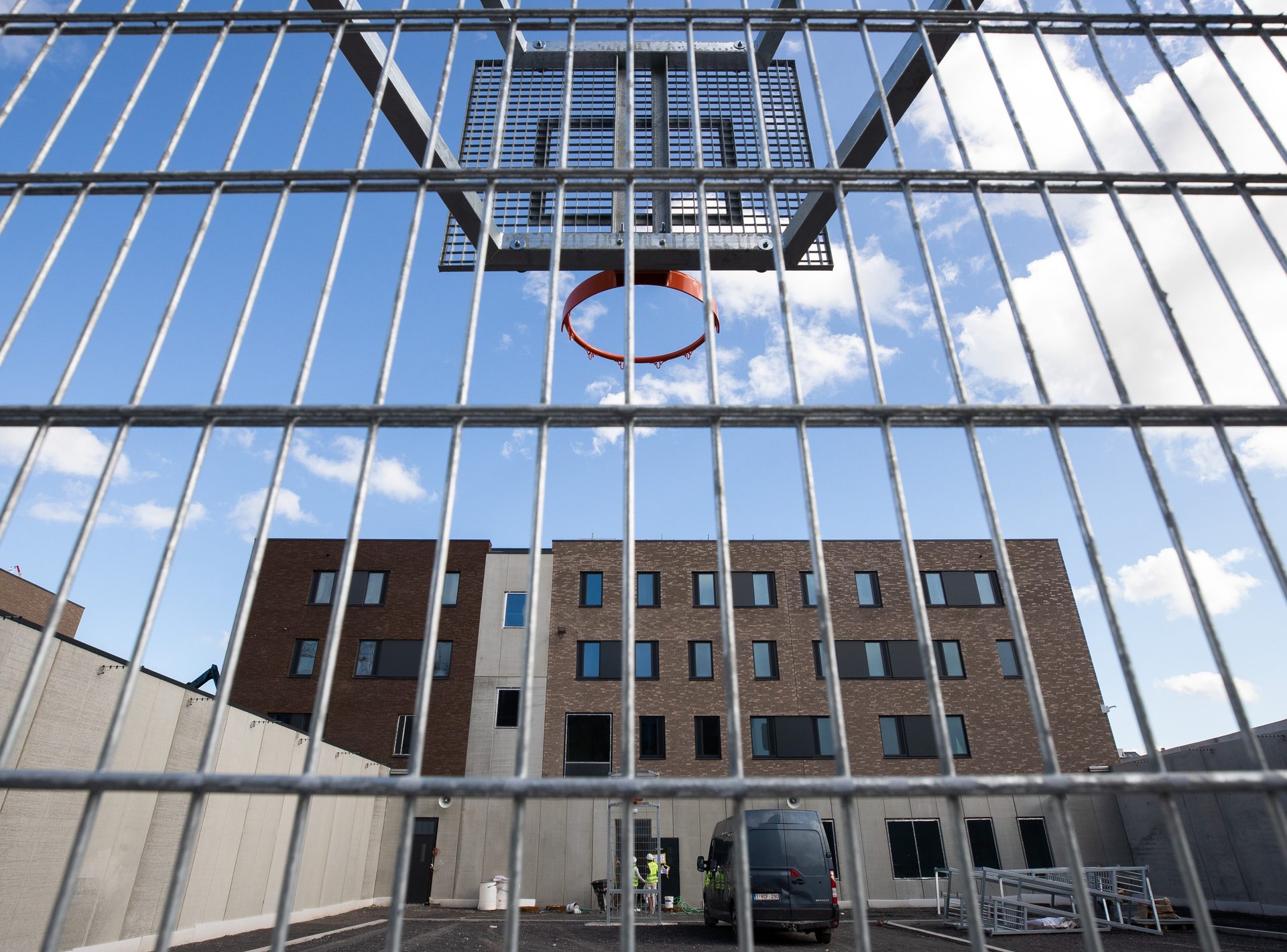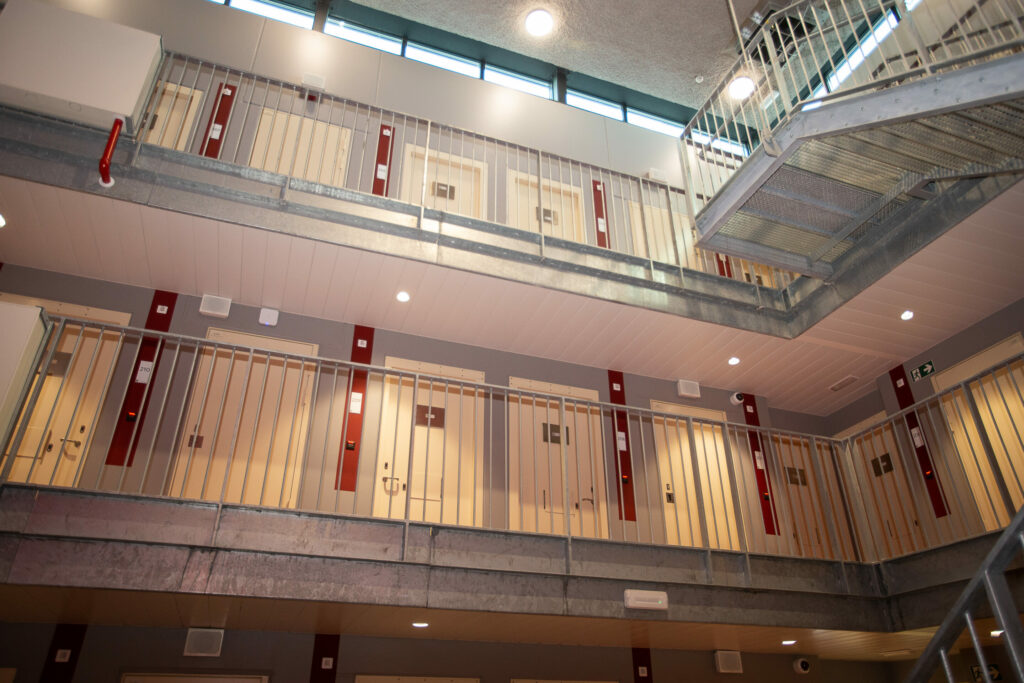Since its inauguration amid much fanfare, the Brussels-Haren "mega-prison" has been widely criticised for failing to live up to expectations.
The latest internal review has highlighted the inhumane conditions for both staff and cellmates, illustrating the severe problems being faced by the facility which was tipped to solve Belgium's prison overcrowding and ageing institutions.
Opened in 2022, the 1,190-bed facility in Haren was intended as a solution to Belgium's chronic prison overcrowding, and authorities vowed it would provide for a more humane approach to detention. However, 500 days after its official opening on 30 September 2022, the country's largest prison is failing on both counts, the Haren Observatory and the Public Services for Prisons (CSC) reported.
"There have been three assaults on prison officers, one suicide attempt, three deaths and two cell fires," the organisations said in a press statement. "All in all, the situation here is catastrophic, and the prison hasn't even fully opened yet." Both groups are calling on the Minister of Justice Paul Van Tigchelt and the Brussels Regional Government to take urgent action.
Vicious cycle
Just two months after the first inmates were transferred to what was meant to be the "prison of the future", several organisations sounded the alarm about the use of punishment and isolation cells and restraint beds.
While the government continued to present Haren "as the jewel in the crown of Belgian prisons", reports of a deteriorating situation at the facility continued to emerge. Inmates were poisoned after a fire in a cell in March 2023 because the smoke extractors were placed too far away; while staff shortages resulted in over-worked prison officers.
The latest report highlights that, since then, there has been another fire, police intervention to return an inmate to his cell and several deaths.
The prison is also experiencing numerous technical problems: the door handles often break which could be the cause of serious incidents, the cells have cold temperatures, and several workshop rooms are not in use. Several people also developed respiratory problems because the air extraction system broke down for almost one year.

'Prison village' in Haren. Credit: Belga / Benoit Doppagne
The conditions of overcrowding are evident here, too. The groups argued that already two-person cells have been fitted with extra bedding, further worsening living conditions here.
Additionally, a portion of the staff – young people employed with a special contract – will soon be leaving, while psychiatric patients from Saint-Gilles Prison are being transferred, meaning the "soon-to-be even more understaffed staff will have to deal with more complex situations in a dysfunctional establishment".
Related News
- Prison staff will strike in a different province every day from next week
- Antwerp Prison torture: Incident reported three times, guilty default complaint filed
"The lack of staff is glaring, while the lack of training and transfer of knowledge, and the lack of experienced staff to train new recruits are daily problems," the groups stated. Additionally, it also appears that the management of the mega-prison is problematic, adopting "an authoritarian and disrespectful management style".
The organisations noted that these have led to very high absenteeism – between 100 and 150 staff are off sick per day – further exacerbating the situation for employees. "It is clear that the State is ultimately responsible. The situation is untenable, and remedial action must be taken without delay," the groups concluded.
Ongoing process
The Justice Minister's spokesperson Tom Van Wynsberge stressed some nuance is required. "The incidents listed did happen, but in an infrastructure for more than one thousand people with an annual throughput of 5,000 inmates, such incidents are not unusual. In comparison, the situation is not as bad as in other prisons." In the case of abuse and aggression towards staff, the procedure is followed and steps are taken to ensure officers are supported.
He added that while the ministry does not take these reports lightly, it is not unusual for newly opened prisons to face these issues, especially from a technical aspect. "This project consisted of transferring many staff members to a new way of working, giving more responsibility to prisoners, and people still have to familiarise themselves with this, which is a process that is ongoing." The recent series of prison strike actions hasn't made this process easier.
Van Wynsberge explained that the recruitment process for new staff members is still ongoing, especially for detention supervisors who help to guide detainees in their process to avoid recidivism. "We still have 200 vacancies for this position and hope they can be filled as soon as possible. This will also help us bring Haren to full capacity once enough staff members are available."

